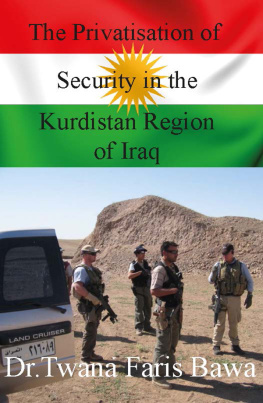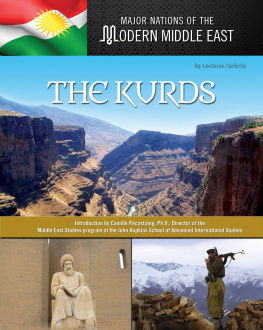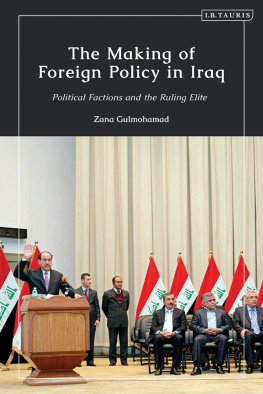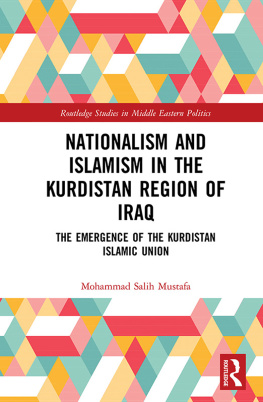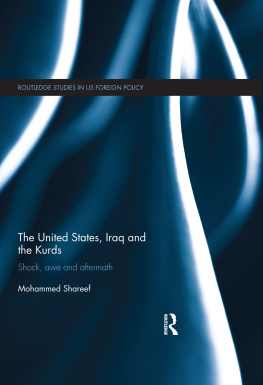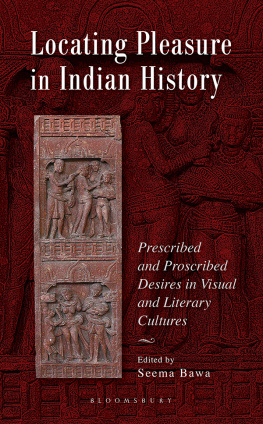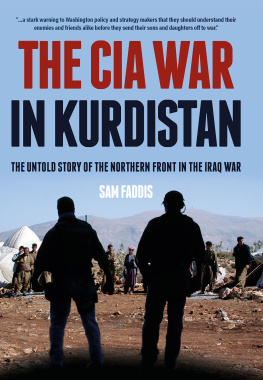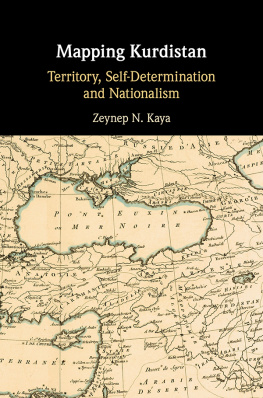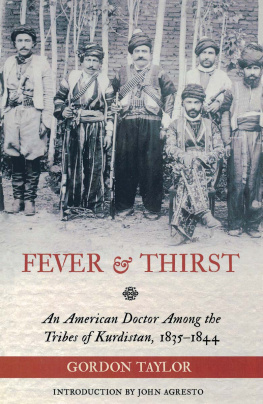First published in Great Britain in 2014 by
The University of Buckingham Press
Yeomanry House
Hunter Street
Buckingham MK18 1EG
Twana Bawa
The moral right of the author has been asserted.
All rights reserved. No part of this publication may be reproduced, stored or introduced into a retrieval system or transmitted in any form or by any means without the prior permission of the publisher nor may be circulated in any form of binding or cover other than the one in which it is published and without a similar condition including this condition being imposed on the subsequent purchaser.
A CIP catalogue record for this book is available at the British Library
ISBN 978-1-908684-51-6
I would like to dedicate this work to my father, General Faris Bawa, it was my fathers dream that every child in Kurdistan would have access to education, something he did not have the opportunity to have, sacrificing most of his life in the mountains of Kurdistan. My father learned to write and read while being imprisoned by the Iraqi Baath regime and he always encouraged me to get educated. I have experienced my fathers guidance day by day. He is the one who let me finish my degree. I will keep on trusting him for my future.
Foreword
The private security industry has expanded exponentially in recent years. This raises a number of issues, of which the question of regulation is the most important. There is no international legislation that specifically deals with private security companies. Many observers and commentators have attempted to include private security companies under the umbrella term of mercenaries, and feel that the anti-mercenary laws should therefore apply to private security companies. This book will argue that in the case of Kurdistan region of Iraq this is a flawed assumption, and it is clear that specific laws regarding the activities and conduct of private security companies must be created in order to properly regulate the industry and help prevent abuses from being committed by private actors that appear to operate in a legal vacuum. This is especially pertinent in the Kurdistan region of Iraq owing to the weakness of the security sector since the Iraq war of 2003. In some ways the Kurdistan region satisfies Max Webers definition of a state but technically the Kurdistan region is a federal region of Iraq. The very unusual status means that it is effectively a weak state in need of security sector reform. This issue will be explained in greater detail in this book. I would argue that its future is partly dependent on the private security industry to help develop state security and pave the way for foreign investment. Very little research has been carried out in the Kurdistan region on this issue and there is a paucity of information regarding the private security industry in this area of Iraq. I have therefore carried out substantive research in the region, interviewing key figures in the security sector and drawing on information from existing regulatory practices in order to develop an indicative model highlighting the key elements that should appear in a viable law concerning the regulation of the private security industry. This will hopefully lead to further developments in regulating the industry, and will help contribute to the literature surrounding the development of the private security industry in the Middle East and elsewhere.
Acknowledgements
I would not have been possible to write this book without the help and support of several individuals:
Foremost, I would like to express my sincere gratitude to my thesis supervisor, Dr. Julian Richards for the continuous support during my PhD study and research, for his patience, motivation, enthusiasm, and immense knowledge. He devoted an immense amount of time and effort to guiding me in this process and I certainly would not have fulfilled this goal without his patient, dedicated and expert leadership and direction.
Dr. Richards is someone you will instantly love and never forget once you meet him.
I would also like to thank Professor Anthony Glees for his encouragement, insightful comments, and hard questions throughout my educational endeavour at the University of Buckingham.
Additionally, this book would not have been possible without the support of my dear family and friends, half-a-world away in Kurdistan. They have never ceased encouraging me to aim high and reach my potential, and their steadfast support throughout my educational experiences has been deeply appreciated.
I wish to acknowledge and thank the persons and institutions who has supported me through the many and unavoidable mountains and valleys that comes with completing a PhD program. Special thanks to, Bawar Faris Bawa, Abdullah Ali, Haval Abdulkhalik, Dr Rawaz Mahdi Khoshnaw, KRG Ministry of Interior, Asayish Directorate Erbil, Peshmerga Farmanda Erbil and SLS security firm.
Furthermore, my family have been enormous help by being patient and allowing me to lock myself in for hours on end, when, I should have been spending more time with them. Their love provided my inspiration and was my driving force.

